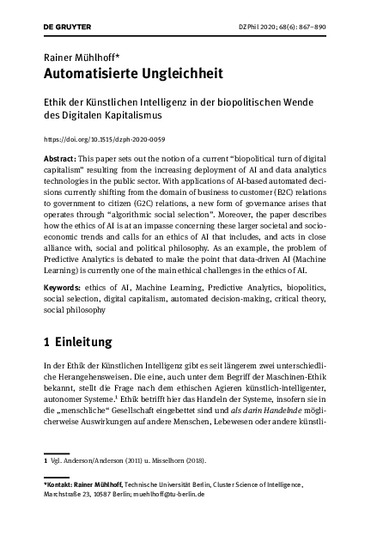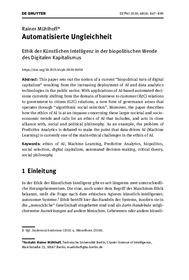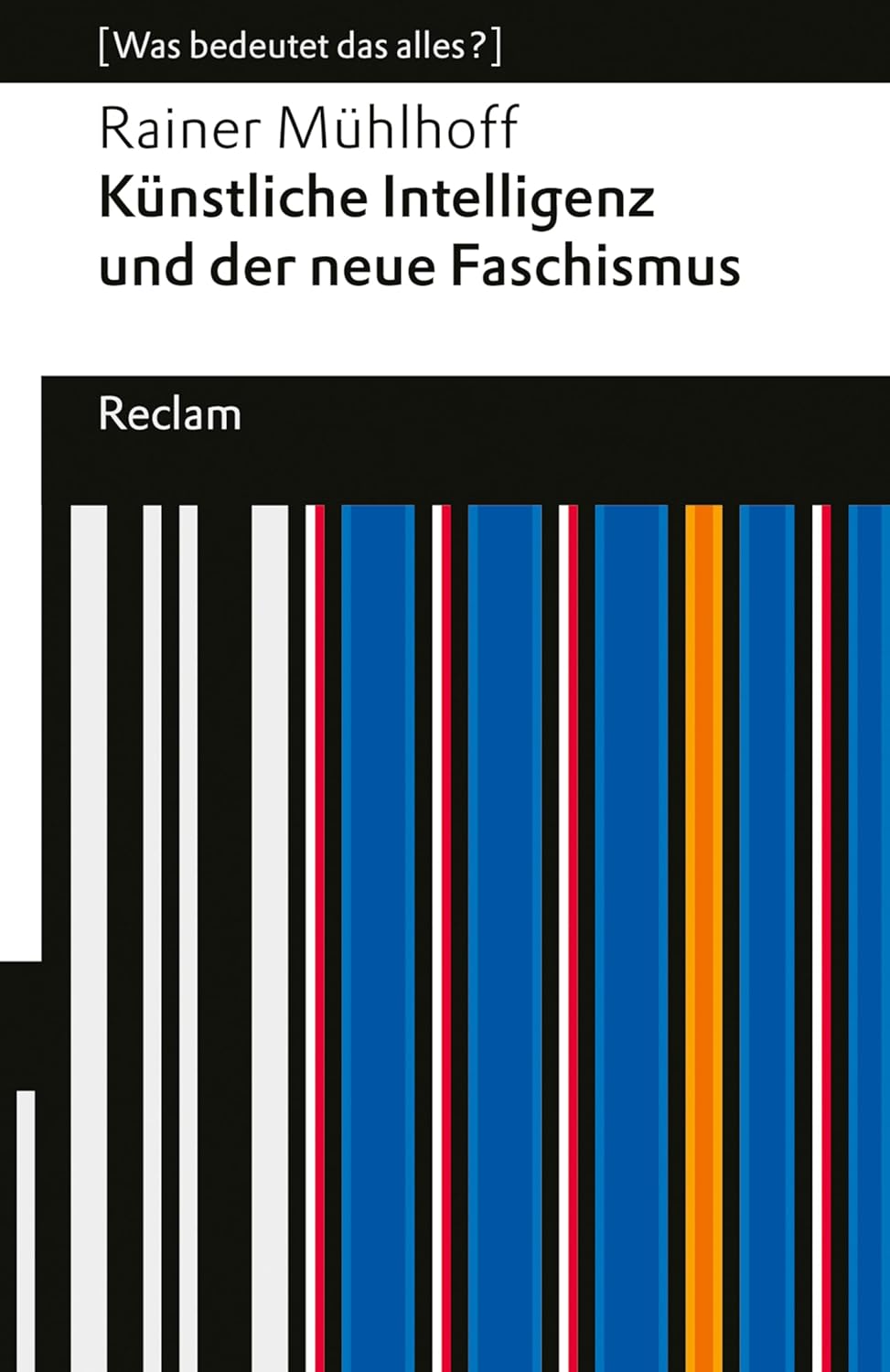New paper on automated inequality in the context of Big Data and AI in Deutsche Zeitschrift für Philosophie
In this recent article, I describe my approach to an ethics of AI that is in close contact with social philosophy and critical theories in order to address issues such as discrimination, social selection, and inequality through AI.
Abstract: This paper sets out the notion of a current “biopolitical turn of digital capitalism” resulting from the increasing deployment of AI and data analytics technologies in the public sector. With applications of AI-based automated decisions currently shifting from the domain of business to customer (B2C) relations to government to citizen (G2C) relations, a new form of governance arises that operates through “algorithmic social selection”. Moreover, the paper describes how the ethics of AI is at an impasse concerning these larger societal and socioeconomic trends and calls for an ethics of AI that includes, and acts in close alliance with, social and political philosophy. As an example, the problem of Predictive Analytics is debated to make the point that data-driven AI (Machine Learning) is currently one of the main ethical challenges in the ethics of AI.
Download options and bibliographic data
-
Mühlhoff, Rainer. 2020. „Automatisierte Ungleichheit: Ethik der Künstlichen Intelligenz in der biopolitische Wende des Digitalen Kapitalismus“. Deutsche Zeitschrift für Philosophie 68 (6): 867–90. doi:10.1515/dzph-2020-0059.
Full text Full text pre-print academia.edu bibtex
×@article{Mü2020:DZPhil, author = {Mühlhoff, Rainer}, title = {Automatisierte Ungleichheit: Ethik der Künstlichen Intelligenz in der biopolitische Wende des Digitalen Kapitalismus}, journal = {Deutsche Zeitschrift für Philosophie}, year = {2020}, volume = {68}, issue = {6}, pages = {867–890}, doi = {10.1515/dzph-2020-0059}, web_group = {papers}, web_academia = {https://www.academia.edu/43614887/Automatisierte_Ungleichheit_Ethik_der_K%C3%BCnstlichen_Intelligenz_in_der_biopolitischen_Wende_des_Digitalen_Kapitalismus}, web_preprint = {https://ssrn.com/abstract=3666727}, web_fulltext_pay = {https://www.degruyter.com/view/journals/dzph/68/6/article-p867.xml}, web_fulltext = {/media/publications/mühlhoff_2020_automatisierte-ungleichheit_DZPhil2.pdf} }






